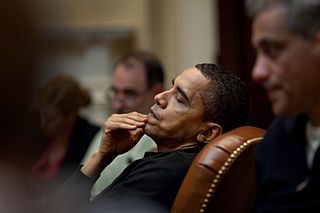Why the U.S.Government Is So Noticeably Silent in Energy Policy
This is not a post on gun control, but rather on U.S. President Barack Obama’s speech on the subject. His comments serve as a startling reminder of where the United States is with respect to the reform of gun-related legislation – and a number of other progressive concepts as well, e.g., renewable energy. Obama warned:
• Lobbies that are huge forces in gaining re-election for our Representatives and Senators are doing everything in their immense power to ensure that this subject will fail, and
• If this is going to succeed, it will happen because – and only because – a huge number of Americans actively stand up and make it happen.
He urged all Americans to contact their elected officials at the local, state, and federal level, and demand that they represent the feelings of the vast majority of the people, and he warned that, in the absence of such pro-activity on the part of the citizenry, the will of the people is likely to be frustrated by these lobbying practices.
I don’t know how to react to this. Most obviously, it’s a sad day when a man who is commonly referred to as “the leader of the free world” openly acknowledges what is essentially corruption in the government he directs. On the other hand, it’s good to see such a candid admission. It’s silly to expect a problem to be resolved before it’s identified as such.


It is an infuriating system – elections are expensive, so potential legislators need cash as well as votes, and the lobbyists are there to fill that vacuum. I agree that it is refreshing to hear Obama speaking candidly about these issues. I hope that future presidents will maintain and build on this evolution of thought.
The amount of money spent on elections would not matter if voters were solely influenced by content and not influenced by repetition. Therefore, much of the fault lies with the voters themselves. But, since we cannot quickly change voters’ behavior to make it more rational, we will have to find some way to limit the ability of large companies and wealthy people to use their money to influence elections.
This seems to be a common problem within democratic systems which typically fail to reflect the real feelings, interests and well being of people and environment.
In many democracies big business and rich individuals have been able to so heavily influences policy that the will of the people becomes effectively what big business and the knee jerk reactions of the gutter press tell them it should.
The public rarely if ever get the chance to give careful consideration to a well presented articulate and honest discussion of policy and political options such as would allow them to make an informed intelligent choice.
If these same people sponsored “tame generals” to carry out a military coup on their behalf the whole world would condemn them, but they do the same thing through exercising financial or partial media influence over the political process and somehow it is OK!
“The public rarely if ever get the chance to give careful consideration to a well presented articulate and honest discussion of policy and political options such as would allow them to make an informed intelligent choice.”
True enough, but consider why.
The media do not keep us adequately informed. The purpose of the media is to maximize profits by maximizing audience size; that is most effectively done by providing entertainment rather than by providing adequate information to enable the audience to understand important issues adequately.
If the public indicated a strong preference for adequate information instead of entertainment by selecting programs which provided adequate information, then the media would provide adequate information, including discussions of all sides of issues supported with clear and objective information. The public is getting exactly what it wants, and it wants entertainment instead of adequate information.
Considering the above, the fault is mainly with the public, and large corporations are very adept in capitalizing on that fault.